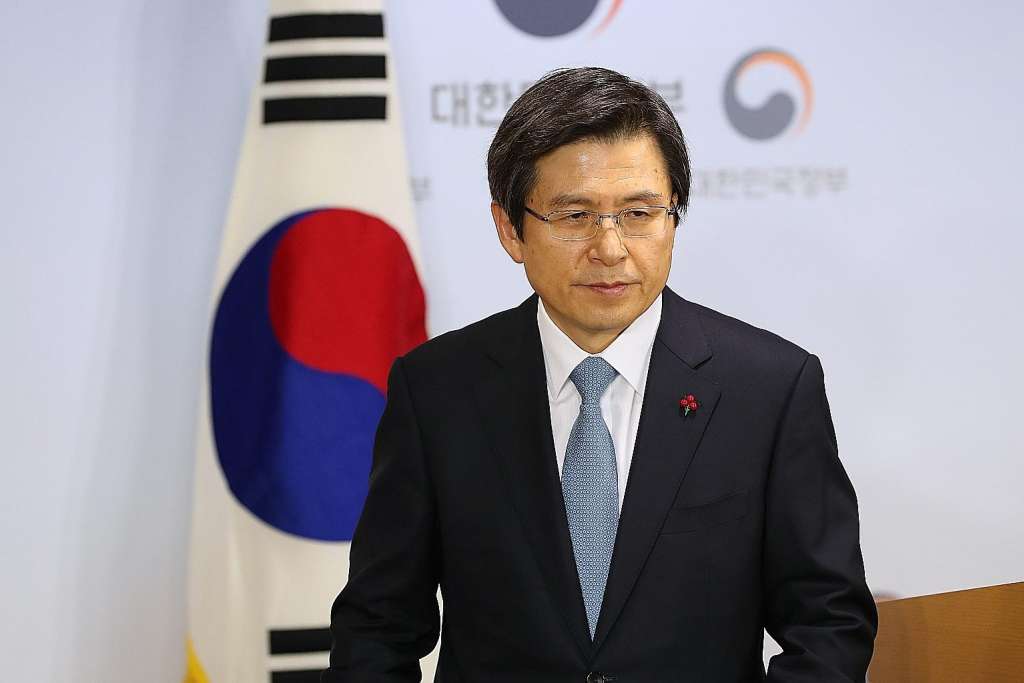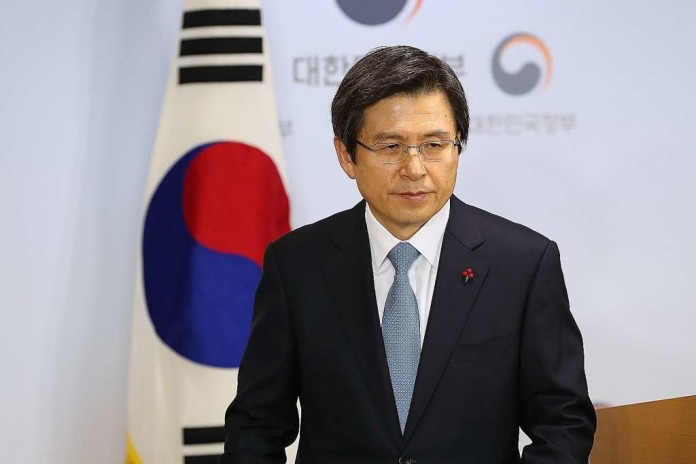He was South Korea’s third prime minister in one year, a largely ceremonial position that kept changing hands under President Park Geun Hye’s administration.
But Mr Hwang Kyo Ahn, 59, a former prosecutor, outlasted even his boss this time round and has in fact taken over her job temporarily.
Ms Park’s powers were suspended on Friday after some of her own Saenuri Party lawmakers joined the opposition in voting to impeach her over an influence-peddling scandal that has driven millions of people into the streets every Saturday to demand her resignation.
While a nine-judge Constitutional Court will take up to six months to decide whether or not to uphold the impeachment, Mr Hwang has stepped in as acting president.
In his first national address on Friday, he called for national unity to resolve the current political crisis and promised to “put every ounce of my energy into bringing state affairs under stable management no matter how difficult the situation may be”.
The path ahead is indeed difficult. South Korea’s economy is sputtering, North Korea is waiting to pounce and collaborations with Japan could stall.
China is ramping up pressure on the South to drop its plan to deploy a US anti-missile system that Beijing fears could compromise its security amid uncertainty in the United States under President-elect Donald Trump’s rule.
Still, Mr Hwang, who is married with two children, has often shown a knack for conquering the odds.
After graduating from Sungkyunkwan University’s law college in 1981, he passed the Bar exam that year and became a prosecutor two years later.
Despite some setbacks, he rose through the ranks and became chief prosecutor at the Busan High Prosecutor’s Office in 2011.
After being named justice minister in 2013, he was grilled in Parliament over allegations including dodging military service and drawing excessive pay as a lawyer, but emerged unscathed.
He was then accused of exerting influence in an election-meddling probe involving the state spy agency and a corruption probe involving Ms Park’s close aides, which he denied.
Mr Hwang also drew flak for cracking down on pro-North Korea activities and disbanding a political group accused of supporting North Korea ideology.
His expertise is in the National Security Law, enacted in 1948 to criminalise pro-North Korea activities, but which critics say is now used to suppress freedom of speech.
The opposition tried but failed several times to push for his dismissal.
Last year, he was appointed prime minister as part of Ms Park’s drive to root out corruption.
Then senior press secretary Kim Sung Woo said Mr Hwang was “the right man to build a new Republic of Korea by eradicating corruptive practices and achieving political reform”.
From Ms Park’s point of view, Mr Hwang is perhaps the best man to guard her presidency.
He is known to be fiercely loyal to her, so much so that progressive newspaper Kyunghyang Shinmun has called him a “key defenceman” in an editorial.
The paper added he was the “relief pitcher each time the government faced a crisis”, citing how he ousted a key prosecutor in the election- meddling probe who was deemed an “eyesore to the government”.
For now, all Mr Hwang needs to do is to maintain the status quo and ensure that the government runs smoothly.
Analysts say he is merely a caretaker and is not expected to make major decisions.
Political scientist Balbina Hwang, a visiting professor at Georgetown University in Washington, said he is unlikely to offer any real leadership or exert any particular political agenda.
“It is clear that Hwang is a ‘place-holder’ to ensure temporary stability, so I do not expect he will be able to do very much.”
Read also: S Korea’s unexpected, unelected new leader

This article was first published on Dec 11, 2016.
Get a copy of The Straits Times or go to straitstimes.com for more stories.






